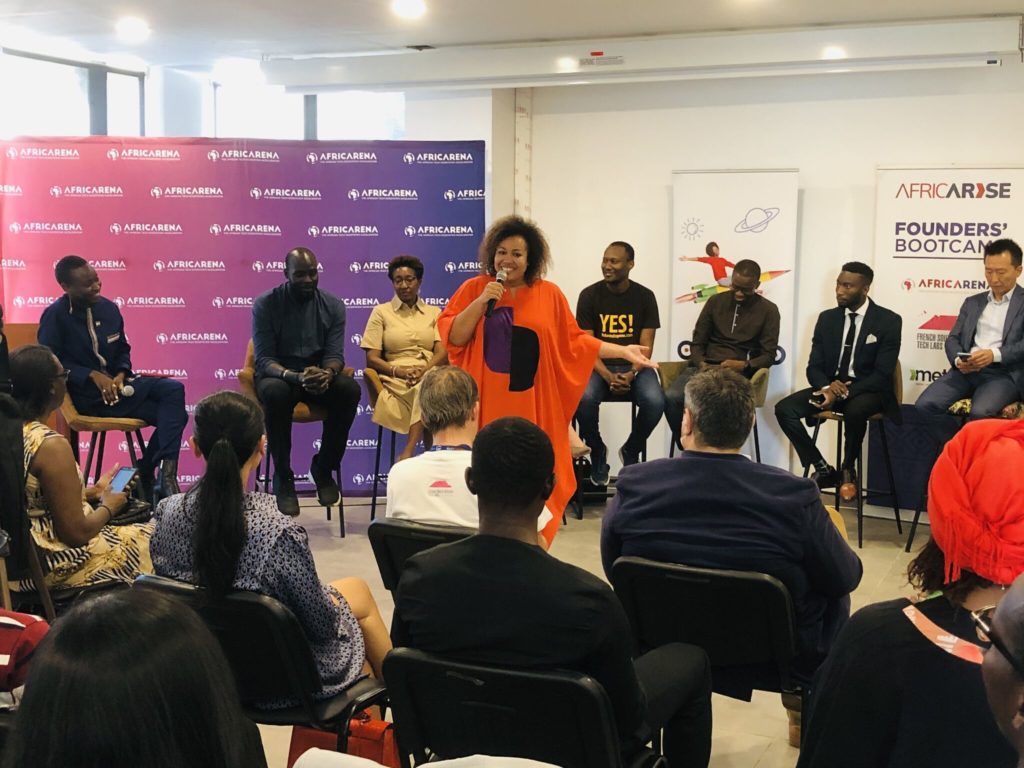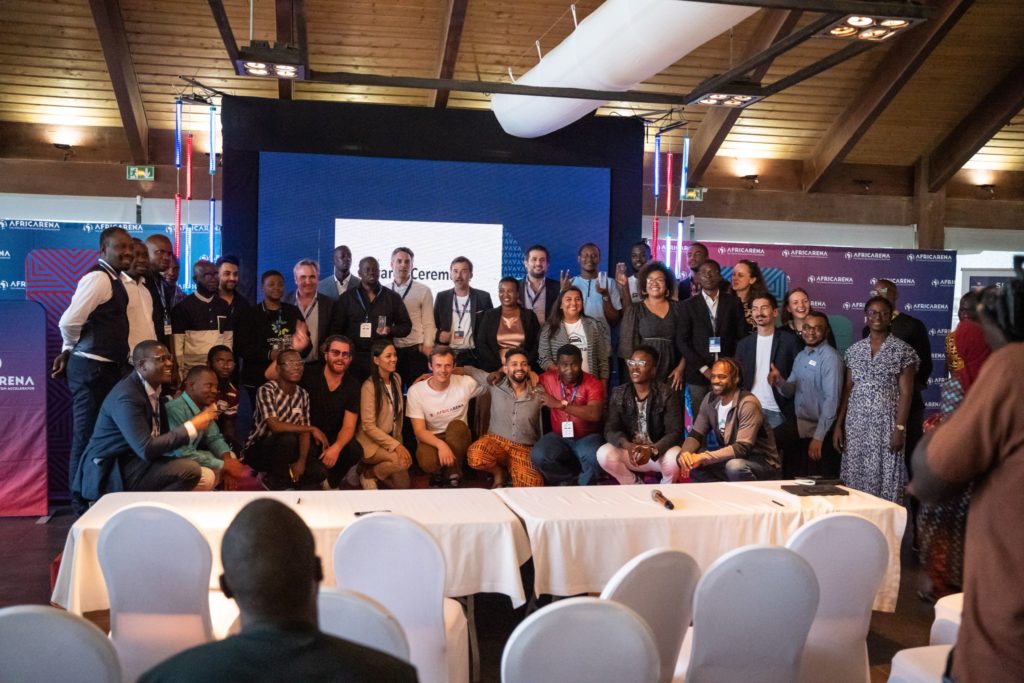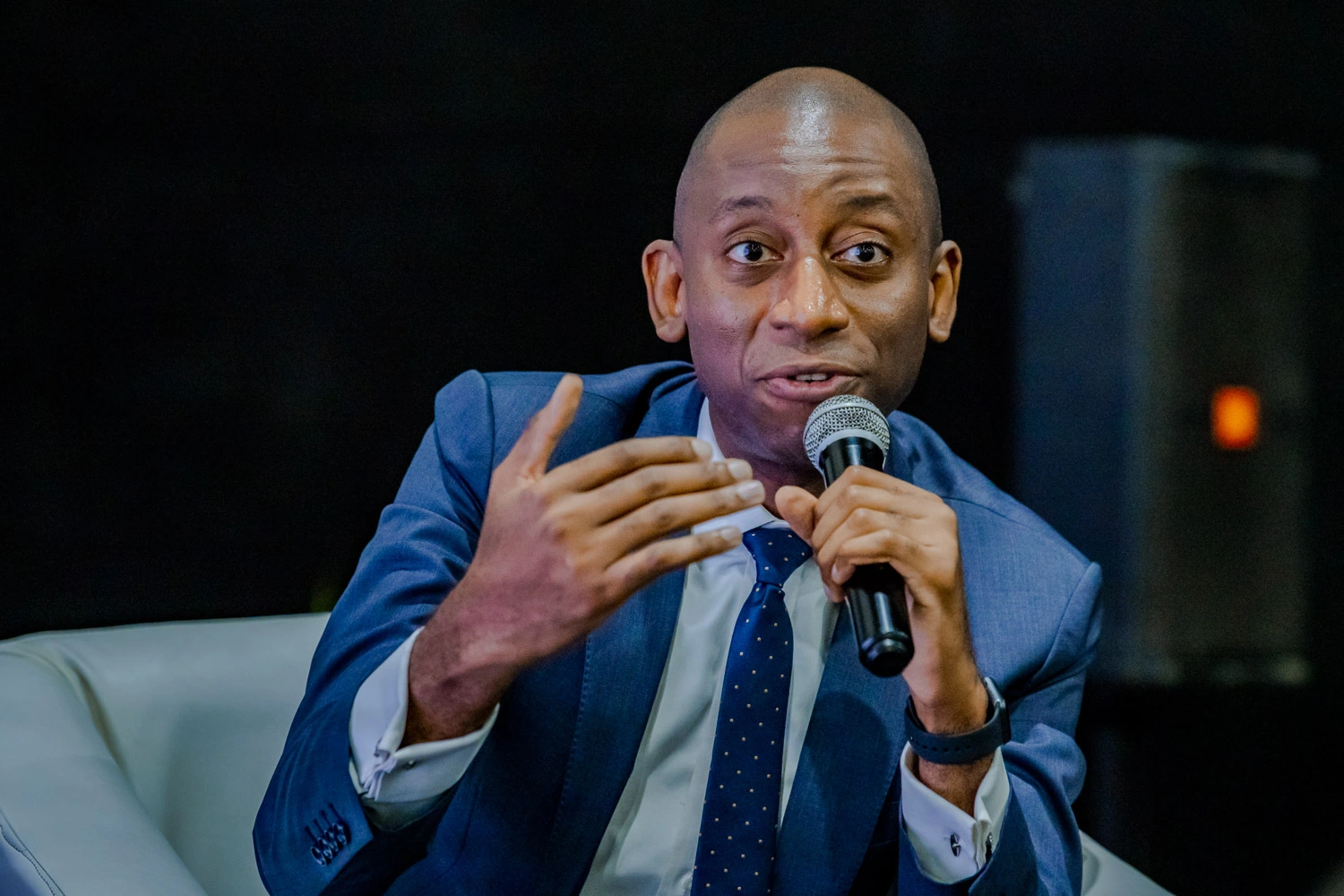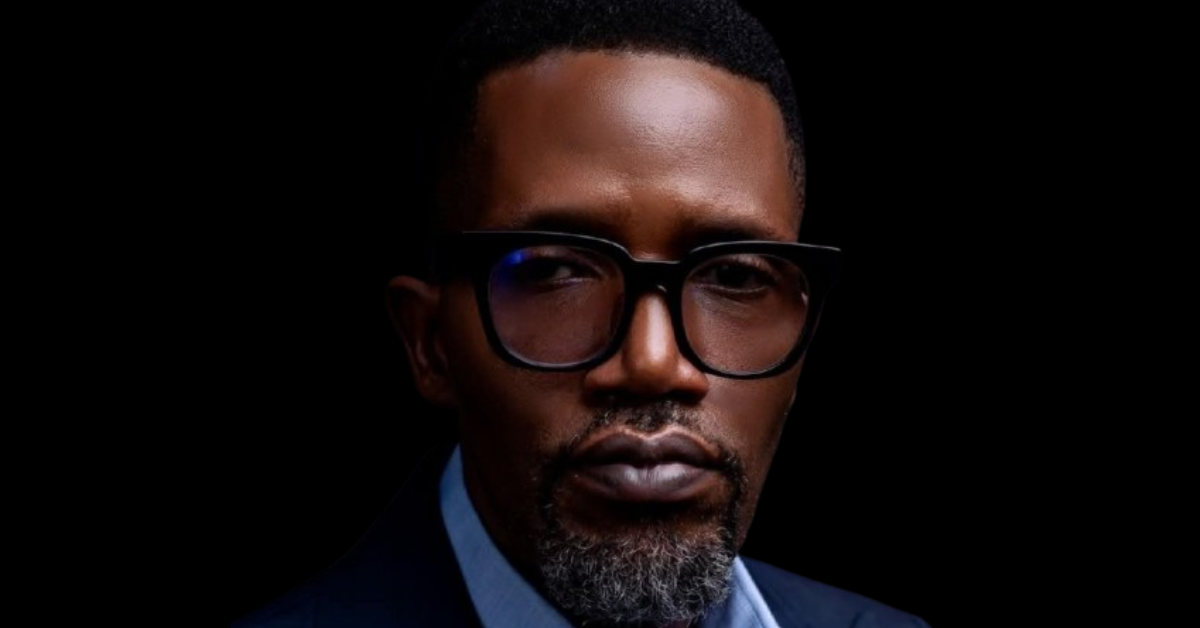On a sunny yet windy afternoon in Dakar, Senegal, inside the conference hall of the 5-star, oceanfront Terrou-Bi Resort, hundreds of tech operators listened as a man in a T-shirt and blazer stood before a panel of 4 judges seated across the stage, their attention fixed on a projector screen displaying pitch decks. To the casual observer, the man in the T-shirt would be a startup founder, making a presentation to investors, trying to convince them that his innovation achieved product-market fit and had competitive advantage.
But at the West African edition of the AfricArena Summit where this scene was unfolding, the observer would be wrong. The man making the presentation was not a startup founder but Bongani Sithole, Managing Director at Founders Factory Africa (FFA), a Johannesburg-based startup accelerator and venture studio; and he was pitching his company to startup founders, in a contest with other venture capitalists (VCs) like him.
“At Founders Factory, we don’t just invest money in your startup,” he was saying, his attention swinging between the judges and his pitch deck, which had been designed with different colours—green, orange, yellow, and more—an intentional approach he said represented the values of diversity and inclusion embraced by FFA. “We equip you with the tools that will take you from where you are to where you must be,” he said and was applauded by a pleased audience.
The AfricArena Summit is a Cape Town-based accelerator that employs events across Africa to connect African startups to local and international investors. The 2022 West Africa Summit was held in Dakar.
Before Sithole took the stage, Transcendence Venture Capital Fund Manager Lin Dejean Yun and FMO: Dutch Entrepreneurial Development Bank’s Venture Program and Venture Capital Manager Marieke Roestenberg had taken the stage to pitch their funds to the founders. These same investors were usually the ones in the judges’ seats, listening to founders as they rattled off their business numbers and threw around market promises. Now, the tables were turned; each one of them was wooing the founders with the promise of the funds they managed.
“The difference between our fund and others is, we’re on [the] ground,” Lin Dejean Yun had said when asked by Rapheal Dana, co-founder and co-CEO of Gozem, a francophone African super app, how her firm was different from the others. “I live here in Dakar and am not domiciled in Europe or America. I’m reachable to our founders and always ready to help.”
Like all other pitch competitions, the best seller won. In this case, it was Founders Factory.
For most of the startups and investors at the AfricArena Summit, it was the first time they’d experienced that kind of shift.
“It’s quite a strange thing seeing investors going head-to-head in real time while founders calmly enjoy the show and judge them,” Stephan Eyeson, co-founder and CEO at Survey54, a survey startup, told TechCabal. His startup was at the summit to pitch for pre-seed funding and won the pitching contest for that category.
But for AfricArena founder, Christoph Viarnaud, who birthed the idea 5 years ago, that’s exactly the point of the summit: to create a unique and unforgettable experience.

“Our obsession is the audience experience of our events, and in 2018 we thought it would be cool to put investors on stage to pitch,” Viarnaud told TechCabal via email. “I must say this created some of my most memorable experiences at the event, seeing people like the Chief Investment Officer of GreenTec Capital Partner, Tomi Davies, making incredible moves on our stage in 2019, or the Dutch Development Bank pitching in Dakar this year—a brave move for a limited partner (LP).”
Viarnaud’s philosophy is that any successful deal has to be balanced, and that starts with each side being placed on the same level. “Investors should pitch as much as startups do. I look forward to more of that,” he said.
The brainchild of a bored man
In 2017, Viarnaud, a serial entrepreneur who already had experience founding and running a couple of businesses, launched AfricArena in Cape Town, to connect founders and investors.
He told TechCabal that the year AfricArena launched, he had been bored and realised that there were no investors-and-founders-centric events in Africa, particularly South Africa. Existing events like AfricaCom and the SA Innovation Summit were either too corporate-driven or “just missing the point”.
He joined forces with the founders’ community in Cape Town to create the AfricArena Summit, organising a pilot event with the backing of La French Tech and a couple of other partners.
In 2018, the organisation introduced the AfricArena Tour, a series of events across different African cities held ahead of the Summit to develop a pan-African deal flow, with Amazon Web Service (AWS) and Vivatech joining in as strategic partners.
The tour began with AfricArena showcasing the promise of their grand summit and inviting people for it in 6 cities. By 2019, the tour had expanded to 12 cities, including New York, San Francisco, Paris, and Tokyo.

When the pandemic hit in 2020, both the summit and the tour, like all other in-person events, were paused. But instead of wallowing in the unfortunate circumstance, AfricArena got busy. They built and launched AfricArena Wired, an app that gives investors and founders access to materials—dealroom, networking, insight, podcast, and more—that they would normally not find anywhere else.
In early 2021, AfricArena ambitiously launched 4 regional events in Johannesburg, Dakar, Tunis, and Nairobi, all leading up to the summit in Cape Town. On June 14, the company said it would showcase 40 African startups to European angels, VCs, and corporates in its first-ever summit in Paris, at Station F, the world’s largest startup campus.
A progressive shift?
Sithole, who told TechCabal that his pitching to founders at this year’s AfricArena Summit would be his first time participating in such a thing, thinks that while the initiative is progressive, it wouldn’t necessarily lead to a big power shift in the investing world. In his view, there aren’t many shifts in power, to start with, at least not as perceived by outsiders; investors want to invest in great companies or companies with the potential to become great. In a sense, he said, the founder is the one with the power here. He added, “This [investor pitching] should be a normal thing. If investors are expecting a good pitch from founders, they have to equally show what good looks like.”
Yu, who pitched Transcendence VC, agreed with Sithole. “It’s quite interesting because the founder’s critique will serve as a learning curve for VCs. As VCs, we often ask all the questions and don’t really know what the founders want to know other than what we present. This initiative would enable them to quiz and stretch us so that we can go back and incorporate our learnings,” she said.
Sithole said the event is not just for aesthetics. “Economically, winning the pitch has led us [FFA] to more deal flow, value, and a few more collaboration contacts across the continent,” he said.
Viarnaud said that what AfricArena has been able to achieve in 5 years will encourage them to do more, include more cities, and take in more startups while the organisation aims at contributing its own quota to scaling the investment attracted by African startups from $4 billion to $30 billion annually within 15 years.




















